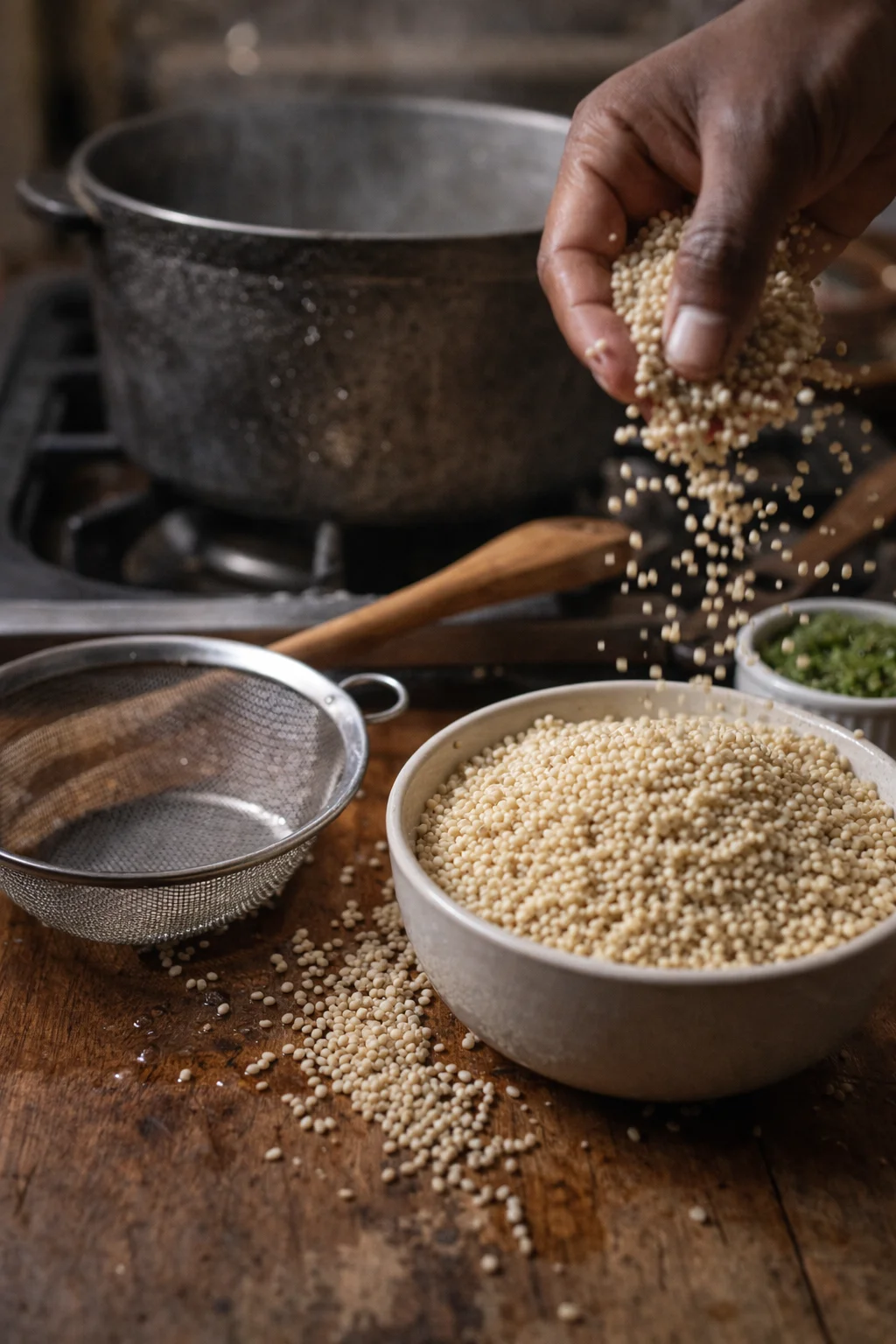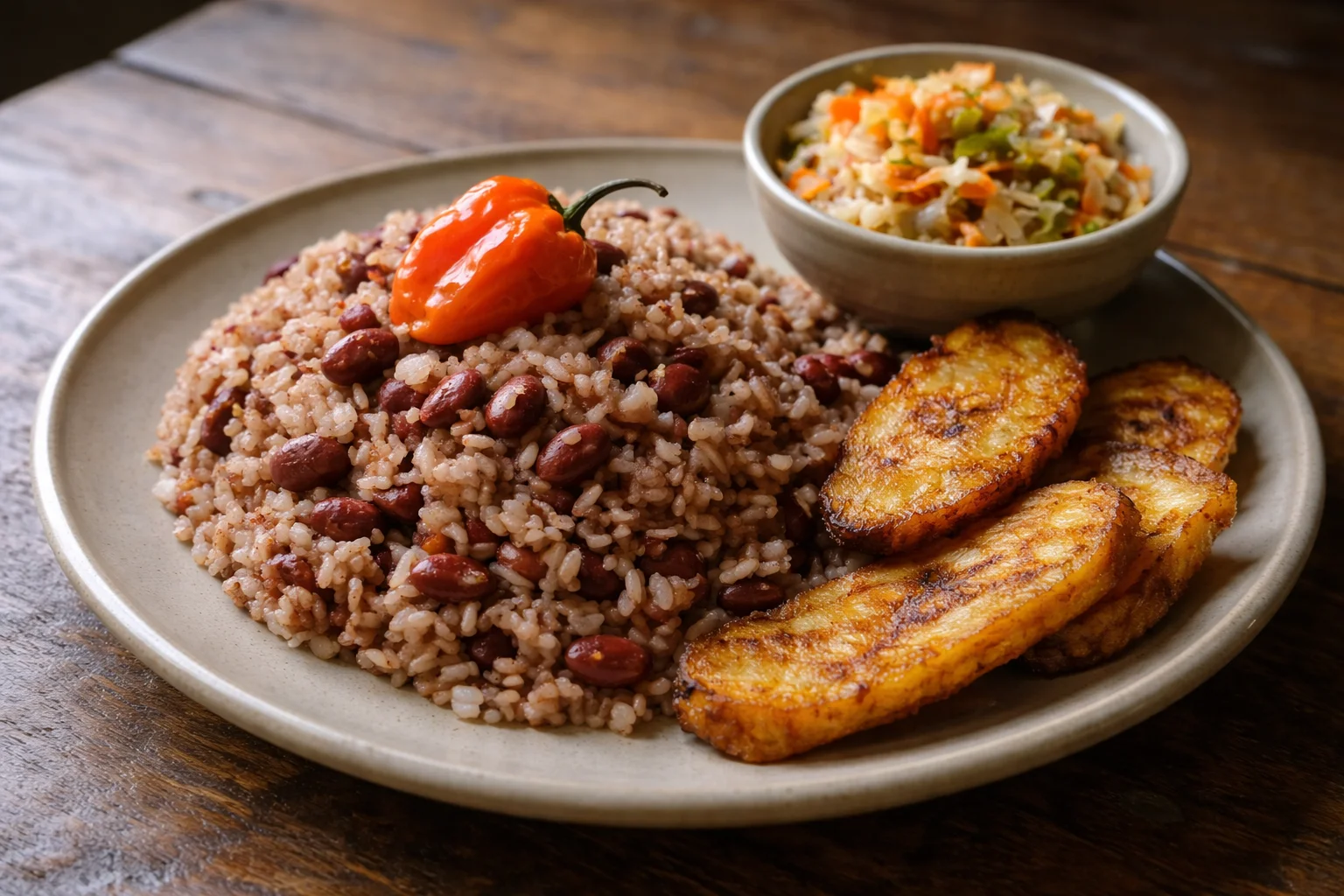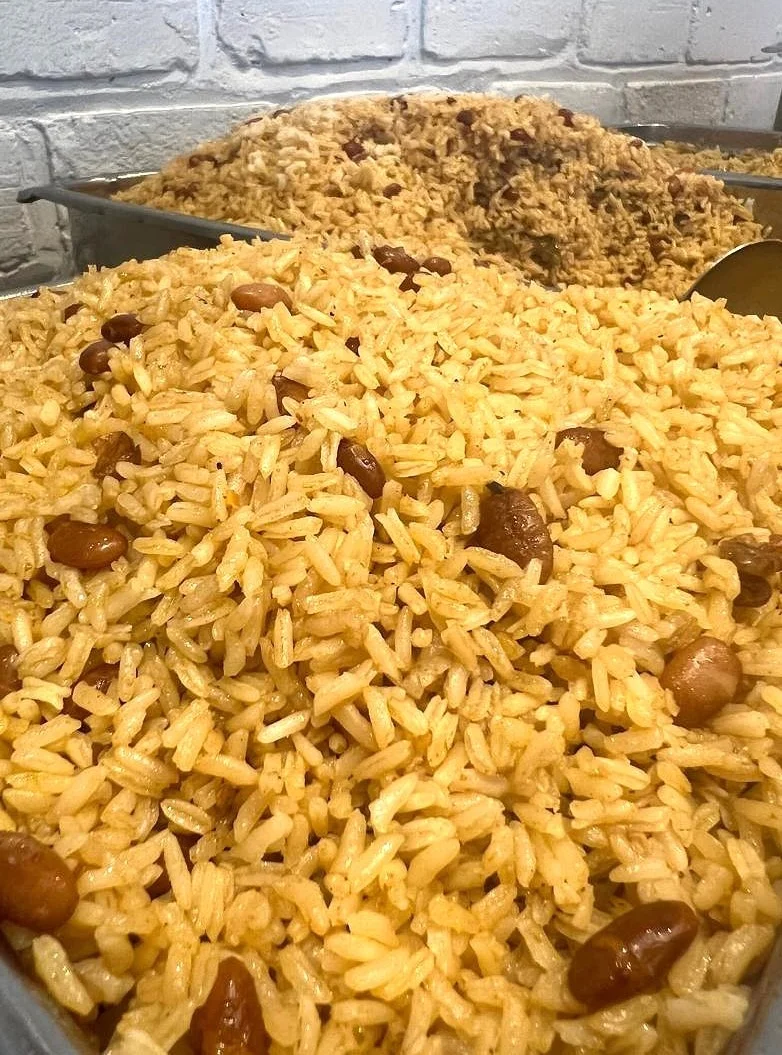For anyone exploring the depths of Caribbean cuisine, “pitimi” often appears as an intriguing, lesser-known option alongside the ubiquitous rice and beans. While white rice often claims the spotlight as the centerpiece of Sunday dinners, pitimi is the resilient, flavorful staple that has sustained households for generations.
Pitimi (pronounced pee-tee-me) is the Haitian Kreyòl term for millet, an ancient grain known for its nutty aroma and impressive nutritional profile. Far from being a mere backup to rice, it offers a complex texture and an earthy flavor profile that pairs exceptionally well with rich, spicy sauces.
This guide explores the cultural significance of pitimi, the specific techniques required to cook it perfectly, and how it differs from other grains found in the Caribbean pantry.
Understanding Pitimi: The Ancient Grain of Haiti
Botanically, the grain known as pitimi in Haiti is typically Pearl Millet or occasionally Proso Millet. It is a small, round grain that looks somewhat like birdseed in its raw state, which often leads to misconceptions among those unfamiliar with its culinary potential.
Unlike modern wheat or white rice, millet is a hardy crop that thrives in hot, arid climates with poor soil quality. This agricultural resilience has made it a critical food source in Haiti’s rural provinces, where it is grown by small-scale farmers who rely on its ability to withstand drought conditions that would destroy a rice crop.
In the kitchen, pitimi transforms completely. When cooked correctly, the tiny, hard grains swell into fluffy, separate morsels that offer a delightful “pop” when chewed. The flavor is distinctively toasted and nutty, providing a savory base that stands up to bold seasonings much better than neutral white rice.
Cultural Significance and Culinary Identity
Food in Haiti is deeply tied to history and social structure. Historically, imported white rice was viewed as a luxury item or a city food, while pitimi was the food of the countryside and the peasantry. It was the fuel for long days of labor in the mountains.
Today, that perception is shifting as more people embrace indigenous crops and traditional diets. Pitimi is celebrated for its connection to the land and Haitian heritage. It appears on the menus of upscale restaurants in Port-au-Prince and in diaspora kitchens in Miami and Montreal, representing a sense of rustic authenticity.
The grain also appears in Haitian proverbs, reflecting its ubiquity. A common saying, “Pitimi san gadyen” (Millet without a guardian), refers to something or someone left unprotected and vulnerable to being taken. This reflects the grain’s value; it was a resource that needed watching because it was essential for survival.
Pitimi vs. Rice and Quinoa: A Textural Comparison
If you are familiar with quinoa or couscous, you have a baseline for understanding millet, but pitimi has unique characteristics that set it apart. Understanding these differences is key to setting the right expectations for your meal.
Compared to Rice: Pitimi is much smaller than a grain of long-grain rice. It does not clump together like sticky rice; instead, a well-cooked pot of pitimi should feature grains that separate easily. It is denser and more filling than white rice, meaning a smaller portion often satisfies hunger for longer.
Compared to Quinoa: While both are ancient seeds (culinarily treated as grains), pitimi lacks the slightly bitter saponin coating found on quinoa. It has a milder, sweeter, corn-like finish. Texture-wise, millet is softer than quinoa when cooked, without the distinct “tail” that unravels from a quinoa seed.

Compared to Couscous: Couscous is a pasta made from semolina wheat, whereas pitimi is a whole grain seed. Pitimi takes longer to cook than couscous (which only needs steaming) and has a more substantial, hearty mouthfeel.
The Critical Preparation Steps: Washing and Toasting
Novice cooks often fail with pitimi because they treat it exactly like rice. To achieve the signature Haitian flavor and texture, two steps are non-negotiable: thorough washing and oil toasting.
The Wash (Lavé): Raw millet is often dusty and may contain debris from the harvesting process. It must be placed in a fine-mesh sieve and rinsed under cold water until the water runs completely clear. This prevents the final dish from having a gritty texture or a muddy taste.
The Toast (Griyé): This is the secret to flavor. Before adding water, the washed and dried grains are sautéed in hot oil (often with garlic or scallions). This toasting process activates the natural oils in the seed, deepening the color to a golden brown and unlocking a rich, nutty aroma. Skipping this step results in a bland, porridge-like dish.
Traditional Cooking Tools and Ingredients
Authentic Haitian pitimi is rarely cooked in a lightweight saucepan. The vessel of choice is the chodyè, a heavy-bottomed cast aluminum pot. The chodyè conducts heat evenly and allows for the formation of a slight crust at the bottom, known as gratone, which is a prized delicacy in many households.
The flavor foundation almost always involves epis. This is a wet seasoning blend made from blended scallions, garlic, parsley, peppers, thyme, and spices. The epis is fried in oil before the millet is added, infusing every grain with savory aromatics.
Another common addition is the Scotch Bonnet pepper. A whole pepper is usually placed in the simmering water to release its floral aroma without releasing its intense heat. Cooks must be careful not to burst the pepper, or the dish will become too spicy for some diners.
Popular Variations: Beans, Djondjon, and Porridge
While plain pitimi is a wonderful side dish, it is most commonly served as a compound dish, cooked together with other ingredients to create a complete meal.
Pitimi ak Pwa (Millet with Beans): This is the standard preparation. Red kidney beans, black beans, or pigeon peas (pwa kongo) are boiled first. The dark, flavorful water from the beans is then used to cook the millet, dyeing the grains a rich brown or purple. The beans provide protein, making the dish nutritionally complete.
Pitimi ak Djondjon: This is considered the most elegant variation. Djondjon are small, dried black mushrooms native to northern Haiti. When soaked, they release a black liquid with a distinct truffle-like, earthy flavor. Cooking millet in this liquid creates a jet-black, highly aromatic dish often served at weddings or special Sunday gatherings.
Labouyi Pitimi (Millet Porridge): Not all pitimi dishes are savory. For breakfast, the grain is milled into a finer flour or boiled extensively with milk, cinnamon, star anise, nutmeg, and sugar to create a thick, warming porridge. It is a popular comfort food, especially for children and the elderly.
Serving and Pairing Suggestions
Because pitimi has a drier, fluffier texture than sticky rice, it pairs best with dishes that have plenty of sauce or gravy. The grains act as a sponge, soaking up the flavors of whatever accompanies them.

A classic pairing is Sos Pwa (Bean Sauce). If the millet is cooked plain, a smooth, pureed sauce made from black or white beans is poured over the top to add moisture and creaminess.
It is also the traditional accompaniment to Legim, a thick vegetable stew made from eggplant, cabbage, chayote, and spinach, often mashed with beef or crab. The structural integrity of the millet grains holds up well against the heavy, wet texture of the vegetable stew, providing necessary contrast.
FAQ
Is pitimi naturally gluten-free?
Yes, millet is a naturally gluten-free grain. It is an excellent carbohydrate source for individuals avoiding wheat, barley, or rye. However, because millet is often processed in facilities that handle other grains, those with severe sensitivities should look for packaging that explicitly states the product is certified gluten-free to avoid cross-contamination risks.
Why did my pitimi turn out mushy?
Mushy millet is usually the result of using too much water or stirring the grain while it is simmering. Unlike risotto, which requires agitation, pitimi should be left undisturbed once the heat is lowered. The standard ratio is roughly 2.5 cups of water to 1 cup of millet, but this can vary slightly depending on the brand. Always err on the side of less water; you can add a splash more if needed, but you cannot remove it once absorbed.
Can I cook Haitian millet in a rice cooker?
Yes, a rice cooker works very well for pitimi. To maintain the authentic flavor, you should still perform the “toasting” step in a separate pan with oil and aromatics first. Once the grains are golden and fragrant, transfer them to the rice cooker, add your water or broth, and use the standard “white rice” setting. This method often produces very consistent, fluffy results.
Where can I buy pitimi?
You can find millet in most health food stores, often in the bulk bin section. However, for the specific variety preferred in Caribbean cooking, it is best to visit a Caribbean or African grocery store. Look for bags labeled “Millet,” “Pitimi,” or sometimes “Bajra” (in Indian markets). The grains should be small, round, and yellowish-beige in color.
Do I need to soak the millet before cooking?
Soaking is not strictly necessary for pitimi, unlike dried beans. However, thorough washing is mandatory. Some cooks prefer to soak the grain for 15 minutes to reduce cooking time slightly, but this can make the toasting step more difficult as the grains will be waterlogged. For the best nutty flavor, wash and drain immediately before frying in oil.
How long does cooked pitimi last in the fridge?
Cooked millet stores very well. It can be kept in an airtight container in the refrigerator for 3 to 5 days. In fact, many people find that the texture improves slightly the next day as the grains firm up. It can be reheated in a microwave or on the stovetop with a small splash of water to generate steam.



